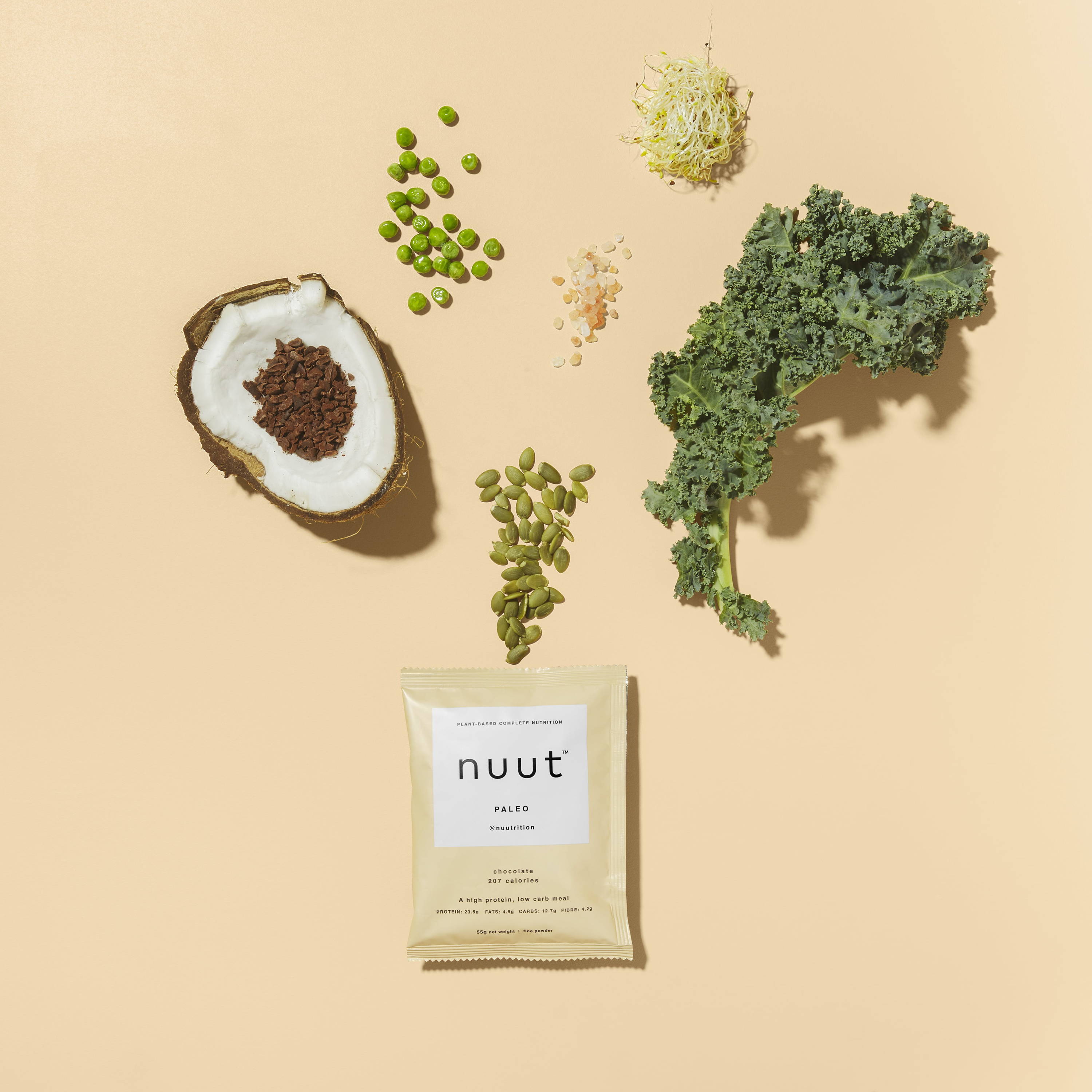changing the way you eat
by team nuut

the term 'plant-based' has been thrown around by wellness gurus, health professionals, celebrities, fitness devotees and social media for years now, but in 2023, it is proven to be much more than just a passing fad. the number of people globally eating plant-based is growing every year with its popularity attributed to a growing awareness of health, the environment, and the cost and ethical benefits of reducing your meat and dairy intake.
'plant-based' versus veganism
many believe 'plant-based' is synonymous with a vegan diet which can put people off before they consider making the change. banishing animal products completely can feel intimidating, yet eating plant-based is vastly different from eating a restrictive vegan diet.
a vegan diet is completely void of all animal products including meat, poultry, eggs, seafood dairy, or anything made from these ingredients. even honey is a no-no! fruit, vegetables, legumes, nuts and seeds (or products made from them) are the only foods permitted on a vegan diet. veganism also includes certain ethical and moral beliefs that go beyond food.
a plant-based diet can be interpreted in lots of ways but is basically one built on a foundation of plants. unlike vegan diets, plant-based diets are more focused on the health benefits rather than the ethics. it avoids processed oils, refined white flour, and products with added sugar and restricts heavily processed foods, instead focussing on whole, unprocessed foods like wholegrains, fresh fruits and vegetables. it does not exclude meat or dairy products, but consumption of it is kept to a minimum.
packed with protein
Meat is not the only way to get protein - consuming your daily quota is simple with well-considered plant-based eating. plants boast exceptionally high levels of protein that when consumed daily easily meet our bodies’ protein needs. researchers in germany found that “athletes following a plant-based diet with b-12 supplementation had marginally higher nutrient adequacy than athletes who were meat eaters”.
just 4 weeks to see and feel the benefits!
the food we eat fuels our bodies, providing the energy we need to stay physically and mentally active, and fight disease. when we cut down on animal products, our bodies feel the difference and benefit from the higher-quality nutrients that are found in plants.
whole, plant-based foods like fruits, veggies, nuts, and legumes are packed with everything we need to thrive. they’re also free from cholesterol (which is why doctors warn us to cut back on red meat). studies show that going plant-based can even reduce or reverse inflammation, one of the main causes of chronic pain.
on a plant-based diet, it only takes one month to see significant drops in measurable health indicators like cholesterol, blood pressure and lipids in your blood. in a study of 31 participants over four weeks, significant reductions in high blood pressure were recorded, there was a drop in serum lipids (often a precursor to plaque and blockage), weight loss, smaller waist circumference, and lower resting heart rate.
cheat it – have a nuut
one of the downsides of following a plant-based diet is that it can be very time-consuming, particularly if you have to peel and cut your vegetables. to avoid the temptation of a takeaway and stay on track no matter the circumstances, plant protein powder is the perfect hack. just add to water or milk, shake and you have a nourishing plant-based meal in under a minute. while many protein powders are derived from animal products like whey, plant-based protein powders are made from whole foods, are easy to digest, and can be added to shakes, smoothies, and recipes.
australian-made nuut is formulated using science and plant-based bioavailable ingredients to ensure that just one shake gives your body precisely what it needs for more energy, muscle health, glowing skin and weight loss. simply add 1 sachet to water or nut-based milk. shake or blitz in a blender, and sip. that's it!
who knew going plant-based could be so deliciously simple?